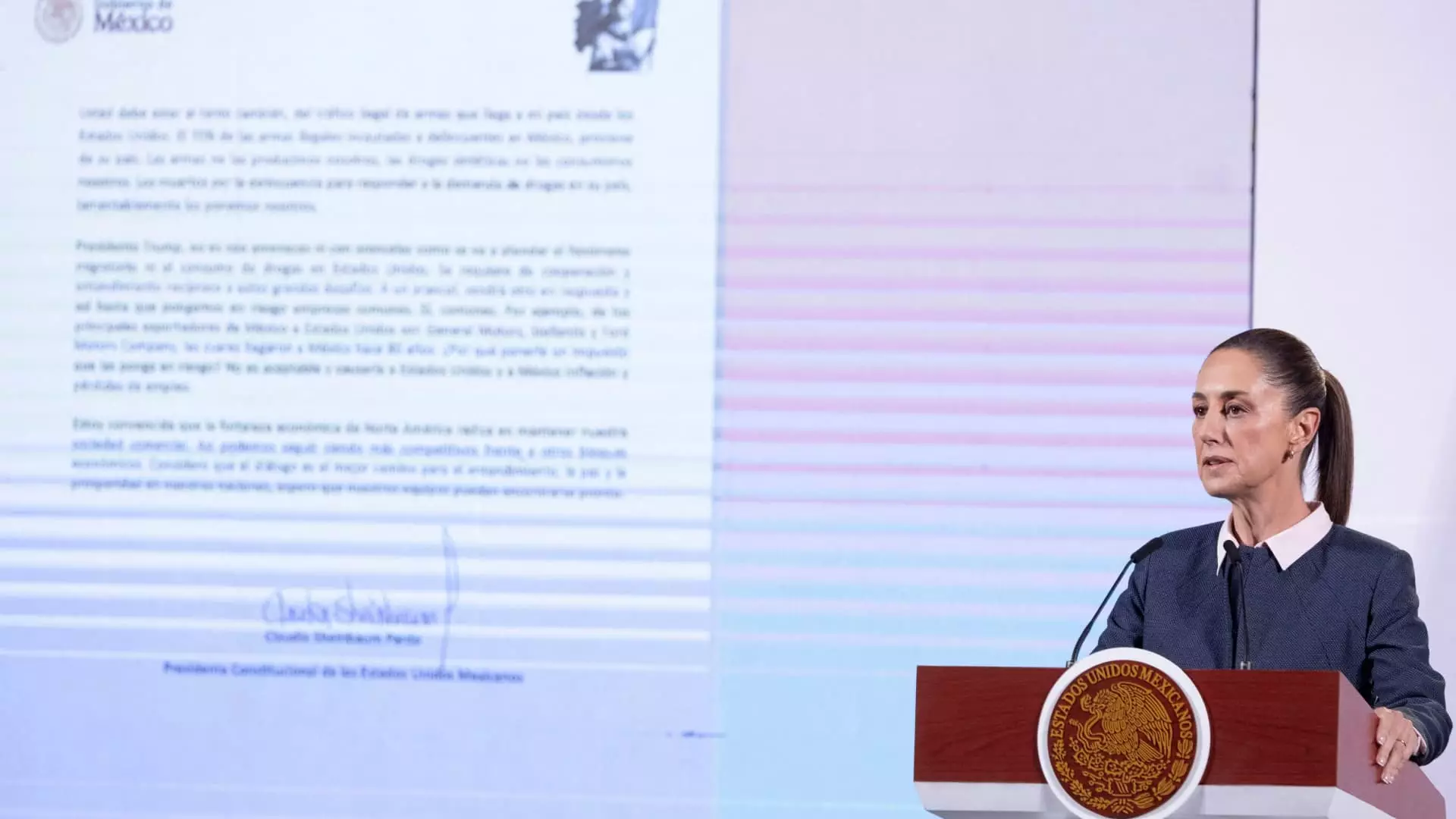The announcement from Mexican President Claudia Sheinbaum regarding potential retaliatory actions against proposed U.S. tariffs marks a critical juncture in North American trade relations. President-elect Donald Trump’s suggested 25% tariffs not only jeopardize economic ties but could also disrupt hundreds of thousands of jobs in the United States. This situation exemplifies the fragility of international trade relations, which hinge upon cooperation rather than confrontation. Both Sheinbaum and Mexico’s Economy Minister Marcelo Ebrard have underscored the detrimental impact these tariffs could have, predicting dire consequences for both nations.
The economic implications of Trump’s tariffs present daunting challenges. Ebrard explicitly stated that up to 400,000 jobs could be at risk in the U.S., a significant number that could create ripple effects across various sectors. These concerns highlight not only the immediate economic ramifications but also the longer-term instability in U.S.-Mexico relations, which have been carefully curated over decades.
Among the hardest hit by the proposed tariffs is the automotive industry, a vital component of Mexico’s economy. Ebrard accentuated the criticality of this sector by noting that a staggering 88% of pickup trucks sold in the U.S. are manufactured in Mexico. The imposition of tariffs could lead to steep price increases—an estimated $3,000 per vehicle—which is particularly precarious given that many of these vehicles appeal to rural voters who largely supported Trump in the last election.
Such changes could serve as a double-edged sword. While intended to enhance protection for U.S. manufacturers, these tariffs could paradoxically harm those same manufacturers. By increasing vehicle prices, consumers might gravitate towards cheaper alternatives, further undermining the intentions behind the tariffs in the first place. This situation stresses the need for a more strategic approach that facilitates discussion and negotiation rather than escalating tensions through hasty fiscal measures.
Trump’s approach has raised eyebrows among many analysts who perceive his tariff proposals as a negotiating tactic rather than a coherent trade strategy. David Kohl, chief economist at Julius Baer, suggests that the lack of a clear connection between tariffs and actual trade policy indicates a desire to leverage these threats for other objectives, particularly concerning immigration and drug control.
This perspective points to a larger issue regarding the nature of negotiation in international relations. When trade policies become tools of political maneuvering, it complicates the landscape for economic participants who rely on predictability and stability. The prospect of repeated threats creates a tense environment, which, in turn, could deter investment, stifling growth prospects for both countries.
The chilling possibility of tariffs also raises concerns about existing trade agreements such as the United States-Mexico-Canada Agreement (USMCA). Since its inception, USMCA has aimed to foster collaboration and enhance economic ties among North America’s economies, but the introduction of tariffs could undermine the hard-won gains of this agreement. Ebrard noted that the current scenario could lead to a rethink of the USMCA, potentially moving towards a complete renegotiation instead of a mere renewal.
In this context, the urgency of the situation cannot be understated. Analysts have warned that prolonged trade conflict could lead to declining economic growth within the U.S., higher unemployment rates, and exacerbated inflation. These economic realities could force both nations back to the negotiating table, reinforcing the notion that cooperation is far more beneficial than confrontation.
The immediate reaction from Mexico’s financial markets, with the peso strengthening against the dollar, reflects an underlying confidence that the situation will prompt some level of negotiation rather than outright conflict. However, this sentiment may be misleading. As the Institute of International Finance alluded, the road ahead may be laden with challenges as protectionist policies gain traction, affecting not just trade but also commodity prices and exchange rates across the region.
The proposed tariffs may instigate a negotiation process laden with risks that could reshape the economic landscape of North America. It is crucial for both U.S. and Mexican leaders to recognize the potential fallout of trade confrontations and prioritize dialogue over divisive tariffs. By doing so, they can focus on building bridges, reaffirming the importance of collaboration in a globalized economy where mutual benefit can lead to shared prosperity.


Leave a Reply